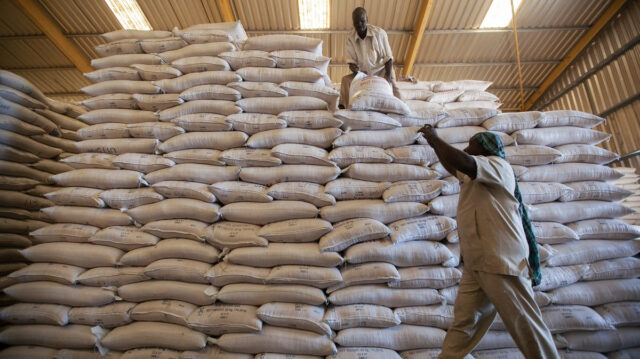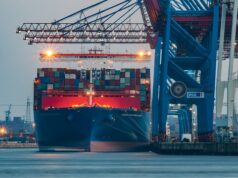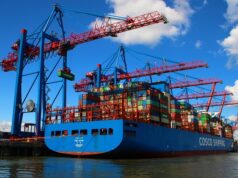
- Leaders of FAO, IMF, WB, WFP and WTO cry for urgent action to address food security crisis saying the lives and livelihoods of 345 million people worldwide are at risk
- Around 25 countries have restricted exports in reaction to crisis, affecting over 8% of global food trade
- The leaders said what’s needed are immediate support to vulnerable, facilitation of trade and global food supply, boosting production and investing in climate-resilient agriculture
Heads of the Food and Agriculture Organization, International Monetary Fund, World Bank Group, World Food Programme and the World Trade Organization have called for urgent action to address the global food security crisis, saying the lives and livelihoods of 345 million people worldwide are at risk.
The leaders said in a joint statement issued at the end of their meeting in Geneva on July15 that the COVID-19 pandemic, international supply chain interruptions, and Russia’s war on Ukraine have severely disrupted the interlinked food, fuel, and fertilizer markets.
FAO Director General Qu Dongyu, IMF Managing Director Kristalina Georgieva, WB Group President David Malpass, WFP Executive Director David Beasley and WTO Director General Ngozi Okonjo-Iweala said urgent action is needed to address the global food security crisis.
“By June 2022, the number of acute food insecure people – whose access to food in the short term has been restricted to the point that their lives and livelihoods are at risk – increased to 345 million in 82 countries, according to WFP.
“Making matters worse, around 25 countries have reacted to higher food prices by adopting export restrictions affecting over 8% of global food trade.”
The leaders said complicating the food supply response is the doubling of fertilizer prices over the last 12 months, reflecting record-high costs of inputs such as natural gas. Global stocks, which steadily increased over the last decade, need to be released to bring prices down.
“All this is happening at a time when fiscal space for government action is already severely constrained following the COVID-19 pandemic. Beyond the short term, climate change is structurally affecting agriculture productivity in many countries,” they said.
The leaders said avoiding further setbacks to achieving the Sustainable Development Goals requires the following short and long-term actions in four key areas:
- Providing immediate support to vulnerable: Rapidly strengthening safety nets for vulnerable households at the national level and ensuring that WFP has sufficient resources to serve the neediest is a priority. WFP operations should be facilitated through actions, such as the recent WTO agreement not to impose export restrictions on its purchases of food for humanitarian purposes.
- Facilitating trade and international supply of food: In the short term, releasing stocks, consistent with WTO rules, and finding a diplomatic solution to evacuate the grains and fertilizers blocked in Ukraine, will help address availability and affordability of food supplies. Facilitating trade and improving the functioning and resilience of global markets for food and agriculture, including cereals, fertilizers, and other agriculture production inputs are key. Removing export restrictions and adopting inspections and licensing processes that are more flexible help minimize supply disruptions and lower prices.
- Boosting production: Taking action to encourage farmers and fishers to boost sustainable food production – in both developing and developed countries – and improve the supply chains to the world’s 8 billion consumers is needed. This requires affordable fertilizers, seeds, and other inputs through the private sector as primary actorS. Providing working capital for competitive producers is also a key priority.
- Investing in climate-resilient agriculture: Supporting resilient investments in agricultural capacity and providing support to adaptation, smallholder farms, food systems and climate-smart technologies are essential to develop a resilient climate-smart agriculture that will ensure steady production in the years to come. Work on norms and standard-setting for food safety and on value chain infrastructure (storage facilities, cooling facilities, banking infrastructure and insurance infrastructure) is also important to increase access and reduce inequality.
The leaders said experience shows that it is important to support developing countries hurt by price increases and shortages to meet their urgent needs without derailing longer-term development goals.
Assuring that the most vulnerable countries facing significant balance of payments problems can cover the cost of the increase in their food import bill to minimize any risk of social unrest is essential, they said.
“We call for countries to strengthen safety nets, facilitate trade, boost production, and invest in resilient agriculture. Country specific needs should be identified and defined through a country-based process that mobilizes investments from multilateral development banks to connect short-, medium- and long-term opportunities, the leader said.
They committed to working together to support this process through the Global Alliance for Food Security, jointly convened by the G7 Presidency and the WBG, to monitor the drivers and the impact of higher prices and help ensure that investment, financing, data, and best-practice knowledge are available to countries in need.








